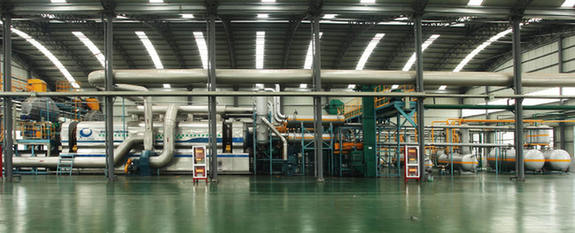A Chinese-Style Asia-Pacific Partnership
A boost for Sino-U.S. relations
On August 13, U.S. Secretary of State John Kerry said at the East-West Center in Hawaii that U.S. President Barack Obama will join APEC economic leaders' summit in Beijing this fall to focus on three major issues: promoting clean and renewable fuels, supporting small businesses and women's participation in the economy and expanding educational exchanges. The three key areas are consistent with Obama's domestic agenda, and are aimed at both the Democrat's midterm elections in 2014 and the 2016 presidential election.
Considering the U.S. mid-term elections, which will be held on November 4, at the request of the United States, China may postpone the APEC summit. Due to domestic issues, Obama has been absent from two consecutive APEC summits in the past two years. If he misses the chance to attend the summit for a third time, the international community will question whether the United States really cares about Asia. It would also have a negative impact on Sino-U.S. relations.
The Obama administration has put forward a widely publicized policy known as the "pivot to Asia." Washington's active promotion of the TPP negotiations and establishment of a set of new trade rules is one of the major pillars of the strategy. In his speech on August 13, Kerry said the United States now attaches greater importance to the Asia-Pacific than ever before, stating that the current administration will redouble its efforts to promote the strategy in the region over the next two and half years.
A rising China and the loss of its dominance in the region are the major concerns of the United States. In the past year, the United States has intensified its efforts to deploy weaponry systems in East Asia and strengthened its military alliance with Japan, Australia and the Philippines. It abandoned its previously neutral stance by showing support for Japan lifting its ban on the right of collective self-defense and interfering in maritime disputes between China and neighboring countries in the East and South China seas. These moves by the United States have had a negative impact on mutual trust.
In the United States, Obama's 2009 China tour was widely considered to have achieved little. Thus, Obama cannot afford to miss out on a second chance. The Obama administration knows that it must come fully prepared to reach an outcome that it can pitch to the public, especially in the fields of climate change, trade, and human rights.
However, Obama should also acknowledge that without a healthy and stable overall development framework for Sino-U.S. relations, his visit to China may not produce a fruitful outcome. During their meeting in California last year, the Chinese and U.S. presidents reached a consensus so as to avoid falling into a Thucydides Trap—that is, to prevent a rising power from challenging the established power. This November, President Obama will have an opportunity to demonstrate his sincerity by adopting mutually beneficial measures.
Source: Beijing Review

